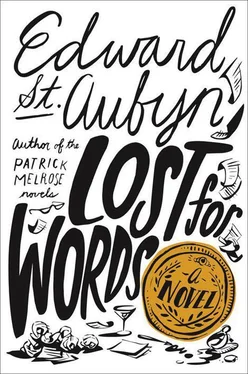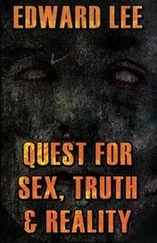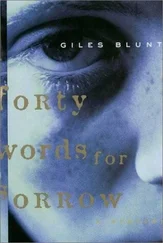He had only just made the Elysian deadline, hanging on to the typescript until the last moment in case there was something still to be done; two sentences turned into one, one sentence broken into two, the substitution of a slightly resistant adjective to engender a moment’s reflection, in short, the joys of editing, all carried out without forgetting the art that disguises art, giving the appearance of ease to the greatest difficulty and bringing clarity to tangled and obscure ideas. It had been a terrible wrench when he handed the typescript to his assistant to get it biked over to the Elysian people on that final afternoon, but he knew that the collaboration would continue. He would help Katherine to find exactly the right way to describe the novel in interviews and, if all went well, the right tone for her speech at the Elysian dinner.
As his taxi turned into Gloucester Terrace, Alan spotted Didier Leroux and Sam Black, both looking rather crumpled, as if they had been drinking all night and hadn’t had time to go home and change. Sam was a novelist who Alan might one day tempt over to Page and Turner, if he could get him for a reasonable price. Didier, on the other hand, he dreaded seeing, not only because he was an ex-boyfriend of Katherine’s who didn’t seem to know when he was beaten, but also because he was always trying to get Alan to publish his books in England. His latest assault had been at a drinks party of Katherine’s when he’d been trying to peddle his new book, Qu’est-ce la Banalité? .
‘I’m sorry,’ Alan said sensibly, ‘but we can’t publish a book in England called What Is Banality? .’
‘Call it The Anatomy of Banality ,’ suggested Didier, following Alan into the kitchen. ‘This will appeal to Anglo-Saxon materialism, and also the echo with The Anatomy of Melancholy signals that it’s a serious work, no?’
‘Of all things that don’t need analysing,’ Alan began, but Didier interrupted him straight away.
‘Ah, non ! We think we know what is banality, but in reality there is something very radical in the concept. When Chateaubriand says, “Everybody looks at what I look at, but nobody sees what I see”, we have the tragic isolation of subjectivity, the heroic vision of Romanticism, and so on and so forth, but the radical moment of the banal is precisely the reversal of Chateaubriand. It announces: “Everybody looks at what I look at and everybody sees what I see”. Epistemologically, this is the pure communism! Communism has not been realized in the state of China, or Russia, or Cuba, but in the state of Banality!’
As a man who had just come back from a conference in Europe, Alan was wholly committed to a borderless continent of high-speed trains and fluid exchanges of rich cultural traditions, but as he passed the pair he couldn’t help wishing that Didier would go back to Paris where he belonged.
The conference had turned out to be a trade fair for digital gadgets and fatuous theories. His worst two hours were spent with an extremely pretty Korean-American girl, who gradually eroded the effect of her physical allure by trying to persuade Alan that the future of fiction lay with Alternate Narrative, an ‘empowering and proactive’ software that allowed the reader to choose alternate outcomes.
‘It creates a participatory reality,’ she explained, ‘which is like a concrete experience of freedom in our lives and in our creative choices.’ Two boxes appeared on the screen, one saying ‘Kill’ and the other, ‘Don’t Kill’.
‘With Alternate Narrative the “language game” really is a language game,’ she said with inexplicable mirth.
After a while she slowed down and entered into a more reflective relationship with her program.
‘It really becomes a mirror for the user’s psyche,’ she said, staring at Alan as if they were trapped down a mine together. ‘I mean if the reader chooses to kill a character, what does that say about the reader’s own “character”. In other words, what narrative are you in? What narrative are you in, in your own life right now ?’
In the end, Alan had bought the program to save Monica from the humiliation of wasting so much emotional effort.
The taxi drew up outside Katherine’s building and Alan, with a litre of airport vodka and an Alternate Narrative to sweeten his return, hurried inside.
Katherine was waiting for him in the hall. She was wearing her pale-green dressing gown with nothing underneath. They kissed and then he led her by the hand into the drawing room.
‘How was your conference?’ she asked.
‘Completely banal,’ he said, sinking into the big armchair. ‘Talking of banality, I saw Didier in the street with Sam Black, just round the corner. I didn’t know they were friends.’
‘They’ve become friends through me,’ she said, straddling the armchair, just as he’d imagined.
She was so perfect it took his breath away.
Penny had been asked by Malcolm to check out Tobias’s favourite novel, All the World’s a Stage. According to the blurb, it was ‘an ambitious and original’ novel, written by a young New Zealander from the point of view of William Shakespeare. It gave a ‘richly textured portrait of Jacobean London’, as well as taking the reader ‘inside the mind of the greatest genius in all of human history’. Penny felt instinctively that this one would be a survivor. Choosing a New Zealander would be a salute to the Commonwealth and at the same time the theme was patriotic and educational. With the Long List being announced tomorrow, she plunged straight in. She couldn’t wait.
‘William!’
‘Ben!’
‘Do you know Thomas Kyd and John Webster?’
‘Lads,’ said William, giving the men a friendly nod.
Thomas returned his smile, but John continued to scowl out of the window, ignoring William.
‘John would as soon bastinado a man’s shanks as shake his hand,’ explained good Master Jonson. ‘He was not yet thirteen when he murdered the blacksmith he was apprenticed to. News came in that day of great Marlowe’s death and John was thrown into the blackest grief. “There’s a great spirit gone,” quoth he.
‘“Indeed the tears lie in an onion that should water that sorrow,” quoth the blacksmith, whereupon such a choleric humour came o’er John that he lifted the glowing poker from the coals of his master’s furnace and plunged it into the wretched blacksmith’s entrails. Never a man died with a more astonished expression on his face, unless it was King Edward, second of that name.’
Before William could respond to this amazing tale of murder most foul, strange and unnatural, John rose up in his chair, in a state of great excitation, and pointed through the window.
‘All eyes! All eyes! My lord Essex comes hard upon us with a great retinue of men. How finely caparisoned they are, and point device in their accoutrement.’
‘Oh happy horse that bears the weight of Essex,’ said William, straining out of the casement to catch a glimpse.
‘See how his mount’s proud impatient hoof doth ring fire from the cobblestones!’ said old Thomas Kyd. ‘How like a god is he in countenance, in bearing how like a king.’
William sank back down next to Master Ben despondently.
‘My pleasure lies in Essex,’ he sighed, ‘but I wait in vain for any sign, or any summons. I am a mere slave that tends upon the hours and times of his desire.’
‘Come, William,’ said Ben, slapping him on the shoulder, ‘enough of that. Let us have one more gaudy night and mock the midnight bell. I have sold my latest play to this innkeeper for five shillings of sack. He understands not a word of it, poor fool, but hopes to sell it for a profit to the Chancellor’s Men.’
Читать дальше












